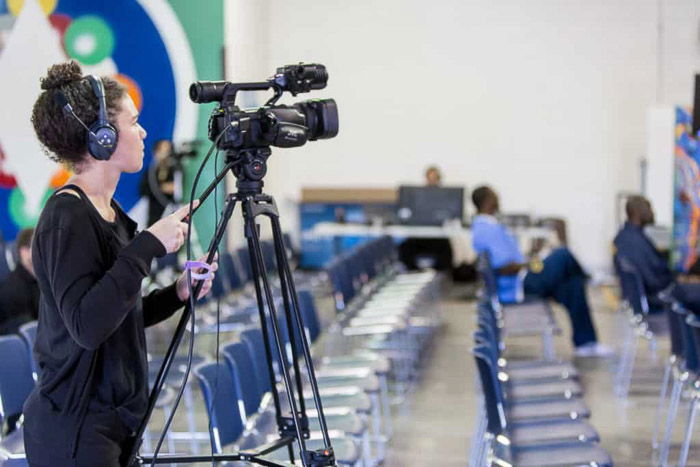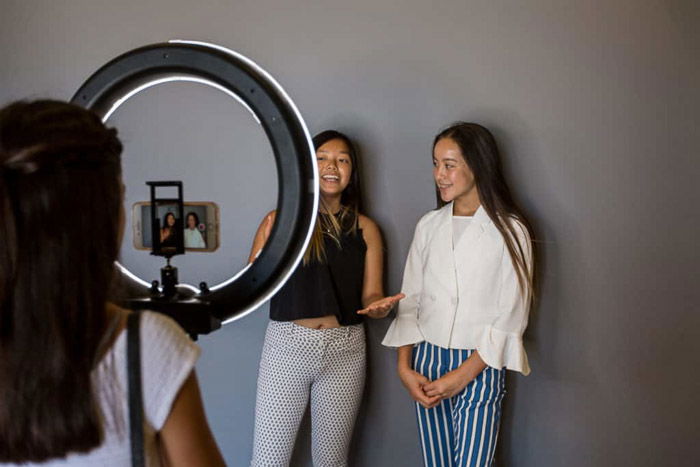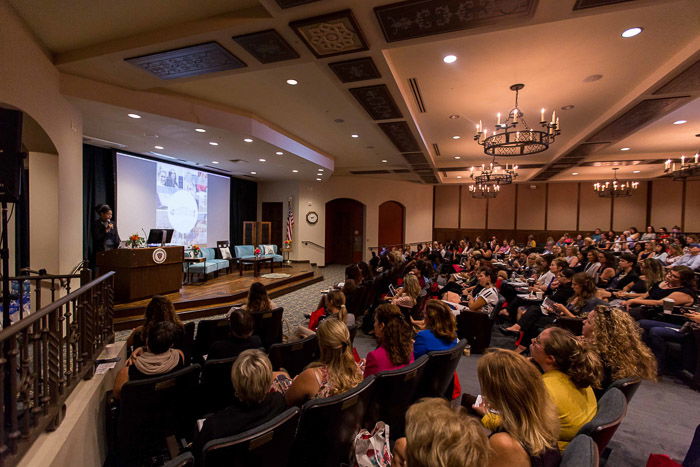Professional Photography License
Most places in the United States don’t ask for this, except for a few select cities. If this is the case where you live, it would be at a city of state level. Check with your local and state officials about whether this is the case for you. Try asking at your local city hall for more details or contacting your state licensing board for the necessary information. You can also Google your town or city/state name. Add “photography license” to see if there’s a professional licensing board for your area. Even if a photography license is not required where you live, consider a certification. Adding some sort of certification to your professional status is a good idea. Especially if you didn’t study photography in college. Organizations like the Professional Photographers of America (PPA) offer certification programs. You’ll have to pass various tests and reviews before receiving official certification. This is a credential you can show your clients. It adds a layer of professionalism to your business structure that will stand out in today’s market.
Business License
This lets your city know that you’re operating an official photography business. The city can verify that you’re operating within local regulations. You need a business license in any city in which you operate. If you’re doing business as a photographer, this means that you could need several business licenses. If you live in one city but serve customers in different cities, for example. The minimum you should have is a license for the city in which the business is based. This will most likely be your home or photo studio location. Beyond that, speak with the city officials at each city in which you conduct business. Professional licenses for small businesses are free or involve a minimal annual fee. You might also need a business license if you’re working with event venues. They might also ask for insurance documents to allow you to shoot on their premises. Finally, your business license may be requested as part of loan applications. This will support the reliability of your business for income.
Sales Tax Permit
The sales tax permit is mandated by your state. If you live in a state that does not charge a sales tax at all, then you don’t need this permit! Still, I recommend checking with your state government site. It’s a good idea to confirm that you don’t need a sales tax permit for your specific business. Also, you may end up owing sales tax to other states if you sell to clients throughout the country. Even if you live in a state that charges sales tax, your business may still be exempt. Tax laws are always changing. But most states charge sales tax on tangible products only. This means that if you sell a service or a digital product that is not given in physical form at all (like a USB drive, for example), then you most likely do not owe sales tax. Again, it’s a good idea to check your state’s site to verify if you need a sales tax permit for your business or not.
Business Insurance
This isn’t a license or permit of any kind. But you should think about it when you’re getting your business’ paperwork in order. If you photograph events, you’ll need liability insurance. This will allow you to shoot at most event venues. For other types of photography you don’t need to have insurance. But it’s still a great idea. Insurance will protect you from loss or damage of gear. And it will cover you in case of any damage or injury while on location. When shopping for photography insurance, be sure to compare rates from several companies. And ask about the options for coverage. Keep in mind, also, that you’ll most likely begin with basic coverage. You’ll build to more comprehensive insurance needs as your business grows. If you want to learn more about photography insurance, check out our article here.
Conclusion
Starting a new photography business can feel overwhelming. But it doesn’t have to be. Get familiar with the local resources that are available to small businesses. Make sure to do this before charging clients for your services. Reaching out to your city and state officials will help ensure that you set up all the paperwork required for your business. And it will give you the peace of mind that you can focus completely on building your business and serving your clients. Next, check out our articles on photography insurance or freelance photography and watch your new photography business grow!






title: “Photography License What Is It And When Do You Need One” ShowToc: true date: “2023-01-22” author: “Monica Myhre”
Professional Photography License
Most places in the United States don’t ask for this, except for a few select cities. If this is the case where you live, it would be at a city of state level. Check with your local and state officials about whether this is the case for you. Try asking at your local city hall for more details or contacting your state licensing board for the necessary information. You can also Google your town or city/state name. Add “photography license” to see if there’s a professional licensing board for your area. Even if a photography license is not required where you live, consider a certification. Adding some sort of certification to your professional status is a good idea. Especially if you didn’t study photography in college. Organizations like the Professional Photographers of America (PPA) offer certification programs. You’ll have to pass various tests and reviews before receiving official certification. This is a credential you can show your clients. It adds a layer of professionalism to your business structure that will stand out in today’s market.
Business License
This lets your city know that you’re operating an official photography business. The city can verify that you’re operating within local regulations. You need a business license in any city in which you operate. If you’re doing business as a photographer, this means that you could need several business licenses. If you live in one city but serve customers in different cities, for example. The minimum you should have is a license for the city in which the business is based. This will most likely be your home or photo studio location. Beyond that, speak with the city officials at each city in which you conduct business. Professional licenses for small businesses are free or involve a minimal annual fee. You might also need a business license if you’re working with event venues. They might also ask for insurance documents to allow you to shoot on their premises. Finally, your business license may be requested as part of loan applications. This will support the reliability of your business for income.
Sales Tax Permit
The sales tax permit is mandated by your state. If you live in a state that does not charge a sales tax at all, then you don’t need this permit! Still, I recommend checking with your state government site. It’s a good idea to confirm that you don’t need a sales tax permit for your specific business. Also, you may end up owing sales tax to other states if you sell to clients throughout the country. Even if you live in a state that charges sales tax, your business may still be exempt. Tax laws are always changing. But most states charge sales tax on tangible products only. This means that if you sell a service or a digital product that is not given in physical form at all (like a USB drive, for example), then you most likely do not owe sales tax. Again, it’s a good idea to check your state’s site to verify if you need a sales tax permit for your business or not.
Business Insurance
This isn’t a license or permit of any kind. But you should think about it when you’re getting your business’ paperwork in order. If you photograph events, you’ll need liability insurance. This will allow you to shoot at most event venues. For other types of photography you don’t need to have insurance. But it’s still a great idea. Insurance will protect you from loss or damage of gear. And it will cover you in case of any damage or injury while on location. When shopping for photography insurance, be sure to compare rates from several companies. And ask about the options for coverage. Keep in mind, also, that you’ll most likely begin with basic coverage. You’ll build to more comprehensive insurance needs as your business grows. If you want to learn more about photography insurance, check out our article here.
Conclusion
Starting a new photography business can feel overwhelming. But it doesn’t have to be. Get familiar with the local resources that are available to small businesses. Make sure to do this before charging clients for your services. Reaching out to your city and state officials will help ensure that you set up all the paperwork required for your business. And it will give you the peace of mind that you can focus completely on building your business and serving your clients. Next, check out our articles on photography insurance or freelance photography and watch your new photography business grow!





